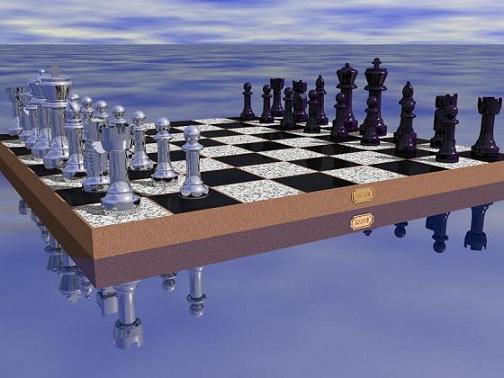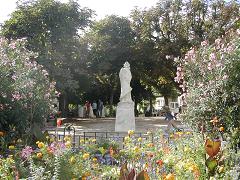
Category: Not-Used-Categories
What are your steps to exercise success?
Well, it’s about a month into the new year. How’re you feeling about exercise these days? What steps could you take right now – today – if you wanted to ensure your exercise success?
I read a sheet on this recently from a health club. Here is what they recommend. What would you recommend?
Five Steps to Exercise Success
- Make it personal – What works for you: for your lifestyle, time constraints, budget, likes, dislikes?
- Make it fit – Schedule time every day or whatever your frequency is. Work blocks of exercise into your schedule.
- Set some goals – Set a long-term goal and break it into weekly or monthly targets (amount of weight to lose, amount of weight to benchpress).
- Reward your efforts – Celebrate successes! Reward your commitment to improving your health. Try to make the reward not food.
- Get back on track – Anything can get you off track (a trip out of town, cold weather, a bit of a cold) – how will you get back on? Can you plan to restart, maybe with lower weights or half the exercise time to readjust.
Ok, and what would I recommend as my steps to success in exercise?
My Steps to Exercise Success
- Get to the gym – Decide how many times a week, and go those times hell or highwater.
- Play and Have Fun – Vary your routine sometimes or go with a friend or go to a weights or cardio class to play around with it and see what you like. Say hi to other people at the gym, get curious, enjoy it.
- Push yourself (e.g. Interval train) – go mild, then increase and go hard, then go mild, then increase and go hard (Body for Life has a good description of this). Interval training has a faster effect on your body, and it keeps you in the moment more about the exercising, doesn’t allow your mind to wander – it must be focused on the exercise.
- Reward yourself sporadically but often – Set yourself incremental goals like as one or two pounds per week weight loss or particular increase in weight, and reward yourself by getting on the phone with a good friend or by stopping by a goodwill and getting anything you like.
What do you think?
Q: What are your steps to exercise success?
What’s your advice for good sleep?
What is your advice for good sleep?
I suggest these three things:
- Create a relaxing bedtime ritual. Create cues for sleep.
- Go to bed 10-11pm.
- Read in bed until you’re tired enough to fall asleep.
Q: What do you find are the best things for you to do to get great sleep?
This is Quetion Friday. Thanks and happy weekend! For fun, check out yesterday’s quotes on sleep.
How to Get to Sleep on Time
I’m getting married in the mornin’!
Ding dong! The bells are gonna chime.
Pull out the stopper!
Let’s have a whopper!
But get me to the church on time!
~ My Fair Lady, Get Me to the Church on Time
How can you get to sleep on time? On your time. At the time you want to fall asleep? WebMD has 12 tips for better sleep. I completely agree with one of the tips:
Allow yourself one hour to unwind before bed. Brush your teeth one hour before getting into bed and wash your face slowly with warm water. Set the mood for relaxation before bed. This is not a time to be rushing about or planning the following days events. Do this earlier in the evening.
What can you do to relax as completely and as simply as you can before bed?
Can you
* Light a candle,
* Have some camomile tea,
* Brush your hair,
* Meditate,
* Breathe,
* Read some poetry?
What can you do to prep your body that it is about to go to bed? What cues can you give to your body (smell – light-fragrance candle, sight – darken the lights, touch – put on pajamas and night clothes, taste – brush your teeth, hear – put on classical music)? Or other cues? How can you give your body a clue that sleep is about to happen?
That is the single-best thing you can do for your body to get ready for sleep – to put it in the mood for sleep. I suggest getting ready for bed between 10 and 11pm. You need to be in bed by 10 or 11pm for optimal functioning, in my humble unscientific in this case, opinion.
And, yes, this will take longer than your usual routine, and yes, you’ll need to factor that time into your day, but it will pay off in healthy, full sleep.
One more tip: get ready for bed, get everything ready (including all these above cues), and then just get in bed and read. Read books for fun, not necessarily books for work or for homework. Marsha Norman says that if you’re a writer, you should read for four hours every day, and if anyone asks you what you’re doing, tell them that you’re busy and you’re reading. And for those of us who are not writers, reading is so opening, so exhilirating, so freeing, so full – it is the ideal pre-bedtime activity. Reading takes us into different worlds. And by doing so absolutely prepares us for bed.
IN SUMMARY:
- Create a relaxing bedtime ritual. Create cues for sleep.
- Go to bed 10-11pm.
- Read in bed until you’re tired enough to fall asleep.
Note: I know these above won’t work for everybody. That’s why they’re my opinoons and my suggestions only.
Sleep
Why does a day sometimes start the night before? For example, in religions, if tomorrow were a fasting day, then the fast would start at nightfall today. Also, in sports, your coach will often tell you what you eat the night before and how you sleep the night before are very important. Folks often arrive to far away meetings the night before to “be fresh” the next morning. Another example: Christmas EVE. Evenings are the precursor to days.
Recently, a group of researchers led by Nobel-prize winner Daniel Kahnemann has been studying people’s happiness in a very simple-to-grasp way: people were asked to write down at the end of each day which activities they enjoyed and which they didn’t (as you can imagine, “intimate relations” was highest and commuting was lowest on the list). Most interestingly, “Events such as a poor night’s sleep had a large impact on how people felt about what they did the following day,” says this study summary.
This reseach appeared in the Dec 3 issue of Science Magazine (abstract here). The method of asking to sum up the enjoyments of the day is called the Day Reconstruction Method, and the researchers asked about 900 women in Texas to complete these forms. Because the data was for women only, the researchers do not claim that it’s generalizable to the entire population.
The fascinating book Sleep Thieves talks in detail about the physical harm to the body that happens when deprived of sleep. The author Stanley Coren talks about people being more accident-prone and increasingly exhausted. One of the more interesting parts of the book is when Coren describes the fact that sleeping less one night and trying to “catch up” the next night or few nights does not get your body back into its balance: there is something lost when sleep is lost.
Today we’ve talked about why sleep is so important. And tomorrow, we’ll talk about how to get more full, healthy sleep.
Some fun thoughts on sleep:
- CNN reports that stock strategist James Montier recommend in ’04 that people focus less on stocks and focus more on things that really make them happy – love, sex, exercise and sleep.
- “Sleep in the City” study (summary here) that finds that people get the best sleep in cities including Minneapolis , Detroit, Anaheim, San Diego, raleigh, DC, Chicago, Boston, and Austin, and the worst sleep in cities including Detroit, Cleveland, Hashville, Cincinnatti, New Orleans, NY, Las Vegas, Miami, San Francisco.
- There is a recent study in the UK that looked for what gives people “a sense of well-being”. One of the results is that “a good night’s sleep [is]… linked to contentment” (article here)
Happiness 101
Hi, here is the new topic that I’ll be covering in depth: What can make you happiest? What is happiness for you in practice? How can you be happiest, most productive, most successful?
In this series,
- I’ll tell you about research that works.
- I’ll tell you about books you can read for more info.
- I’ll tell you a general order that generally works, and then you can fit it best to yourself.
Ready?
Here’s the syllabus:
- Sleep (update: Sleep (1-10-07) , How to Get to Sleep on Time (1-11-07), Q: Your advice for good sleep? (1-12-07))
- Exercise (update: Q: Steps to Exercise Success? (1-26-07))
- Goals (update: the Create New Habits series (part 1 Self-Regulation (2-1-07), part 2 GOOD Constraints (3-1-07), two more coming), How to Achieve ANYTHING in Life (3-12-07), Q: What’s your recent self-challenge? (2-23-07) …
Also, BOOK Yourself! The Challenge (2-22-07), Little mouse story (3-6-07), Conscious Decision (3-1-07), and Expertise is Trainable (8-1-06)) - People You Like
- Attitude
- Physical Goals
- Career Goals
- People Goals
- Alone Time
- Self-Growth
At the end, we can discuss whatever else we decide by the time we get here.
You can read all the Happiness 101 posts by going to this hidden Happiness 101 category.
Then Providence Moves Too
The moment one definitely commits oneself, then Providence moves too.
All sorts of things occur to help one that would never otherwise have
occurred. A whole stream of events issues from the decision, raising in
one’s favor all manner of unforeseen incidents and meetings and material
assistance which no man could have dreamed would have come his way.
Whatever you can do or dream you can, begin it.
Boldness has genius, power and magic in it.
Begin it now.
This is a quote that is often attributed to Goethe. This website attributes this quote to Lord “Johnnie” Fisher – British Admiral. The Goethe Society of North America explains here the controversy and mistaken attribution to Goethe.
In any case, I love this quote. Great quote for entrepreneurship.
The Secret History of Thanksgiving
As we celebrate Thanksgiving with turkey, mashed potatoes, apple pie or pumpkin pie, and gathering family and friends, what do we remember about the origins of this tradition? We’ve heard that this tradition grew the first year when Pilgrims settled into Plymouth, Massachusetts when the Pilgrims brought together all their harvests and celebreated their bountiful foods.
The big secret is that the Pilgrins arrived in the fall of 1620, and the first year of harvest of the Pilgrims in Plymouth, 1621, was absolutely terrible, and resulted in a famine. So did the second year. And then in the third year, 1623, something dramatically changed about how the Pilgrims chose to govern themselves, and it is that that led to the bountiful first harvest, and to the gathering around and sharing the great food.
Here is the first person account by the Governor of the British colony in Plymouth at the time, William Bradford, of the years between 1600 and 1622:
* 1621, The first harvest was shared communally among all the families and was very small. Furthermore, from the time they had arrived, abundance had decreased significantly.
“They began now to gather in the small harvest they had, and to fit up their houses and dwellings against winter … every family had their portion. All the summer there was no want; and now began to come in store of fowl, as winter approached, of which this place did abound when they came first (but afterward decreased by degrees).”
* There had been very little supply up until 1623.
“All this while no supply was heard of, neither knew they when they might expect any. So they began to think how they might raise as much corn as they could, and obtain a better crop than they had done, that they might not still thus languish in misery.”
What was the something that changed before the harvest of 1623, the first abundant harvest? William Branford writes:
* This was the DECISION OF THE PILGRIMS in 1623:
To give each family some land to farm on their own as opposed to having communcal farming and communal land.
“At length, after much debate of things, the Governor (with the advice of the chiefest amongst them) gave way that they should set corn every man for his own particular, and in that regard trust to themselves; in all other thing to go on in the general way as before. And so assigned to every family a parcel of land, according to the proportion of their number, for that end, only for present use (but made no division for inheritance) and ranged all boys and youth under some family. This had very good success, for it made all hands very industrious, so as much more corn was planted than otherwise would have been by any means the Governor or any other could use, and saved him a great deal of trouble, and gave far better content. The women now went willingly into the field, and took their little ones with them to set corn; which before would allege weakness and inability; whom to have compelled would have been thought great tyranny and oppression.”
Why did having the private land for each family result in much stronger crops than having a communal shared farming? William Bradford answers this question also with his 1620’s explanation of shirking – he claims that there is no increased happiness in communcal living and that shirking goes away when people farm for themselves as opposed to for others.
* No increased happiness from communal living.
“The experience that was had in this common course … that the taking away of property and bringing in community into a commonwealth would make them happy and flourishing; as if they were wiser than God. For this community (so far as it was) was found to breed much confusion and discontent and retard much employment that would have been to their benefit and comfort.”
* Communal living had hurt everyone – young men, strong men, aged men, and women who were as slaves, says Bradford.
“For the young men, that were most able and fit for labor and service, did repine that they should spend their time and strength to work for other men’s wives and children without any recompense. The strong, or man of parts, had no more in division of victuals and clothes than he that was weak and not able to do a quarter the other could; this was thought injustice. The aged and graver men to be ranked and equalized in labors and victuals, clothes etc., with the meaner and younger sort, thought it some indignity and disrespect unto them. And for men’s wives to be commanded to do service for other men, as dressing their meat, washing their clothes, etc., they deemed it a kind of slavery, neither could many husbands well brook it.”
* In fact, and Bradford writes firmly about this point, communal living and treating all people the same actually ‘diminish[es] and take[s] off the mutual respects’ that people would naturally have towards one another.
“Upon the point all being to have alike, and all to do alike … it did at least much diminish and take off the mutual respects that should be preserved amongst them. … I answer, seeing all men have this corruption in them, God in His wisdom saw another course fitter for them. “
In 1623, there was a DECISION that changed everything, and it is because of that decision that we now celebrate Thanksgiving.
Lesson and Take-Away: People take incomparably better care of something that belongs to them personally than they do of communal property.
Sources:
* William Bradford: History of Plymouth Plantation, c. 1650 (exerpts, entire book in google books)
* More information about the secret history of Thanksgiving can be found here, here, here, and an account dating to 1607 with the Virginia settlement before the Plymouth settlement here.
* If you want to google and search for this real history of thanksgiving, search for the words “thanksgiving private property“.
“Ivan and Abdul†by Bernard Suits – Whole Story
Ivan and Abdul – Part I
Ivan and Abdul – Part II
The story of “Ivan and Abdul” is by Bernard Suits, and ellipses are used to make sections briefer. If I had only ten books to take with me to a deserted island, this would be one of them: The Grasshopper: Games, Life and Utopia by Bernard Suits, a story-based philosophical discussion about what makes games into games.
“Ivan and Abdul” by Bernard Suits – Part II
Continued from yesterday, Bernard Suits’ story of “Ivan and Abdul.” All words are by Bernard Suits. I have used ellipses to make some sections shorter.
———————————————————-
… unbeknownst to Ivan and Abdul, their game did indeed contain at least one rule of the required kind…. Let us awaken Ivan just before dawn on the appointed day and put this question to him.
‘Ivan, are you awake?’
‘I am. Who is it?’
‘I am the Voice of Logic, and I have a question to put to you.’
‘What time is it?’
“An hour before dawn.’
‘Put your question, then, but please be brief.’
‘The question is a short one. Why didn’t you destroy Abdul just as soon as you had decided to have a fight to the finish with him?’
‘Here is an equally short answer. Because I have no interest in destroying Abdul per se. I am interested in seeking to kill him only so that I can be battling him.’
‘Let me test that allegation, if you don’t mind.’
‘Test away.’
‘Very well. I tell you that Abdul is at this moment fast asleep in his bed. You can easily gain entrance to the embassy and kill him in his sleep, thus winning the battle with a minimum of risk by a stunning surprise attack.’
‘As you can see, I am not leaping from my bed and speeding to the embassy.’
‘Yes, I do see that, and it puzzles me very much.’
‘I don’t see why it should. If I kill Abdul before the game starts, then I can’t very well fight him, can I? If I killed him now, our game could never begin.’
‘You are saying that this game you are going to play has a starting time.’
‘Of course.’
‘Not if you stick to your dawn starting time.’
‘And I thought we had finally found a game without the artificiality of rules. How could we have missed this business of a starting time?’
‘Perhaps it was because you were so busy eliminating an ending time. But it is perfectly clear, is it not, that a starting time is just as much of an artifice as a finish time?’
‘Yes, it is.’
‘And now that you know this, you will of course at once sneak up on Abdul in his sleep and kill him, right?’
‘Not at all.’
‘Why not?’
‘I have answered that question twice already. Damn it. I don’t want to murder Abdul – I like him, for God’s sake – I just want to play a game with him.’
‘Yes, I understand that. And you also want to play a game without rules that artificialy limits the means at your disposal for achieving victory. Isn’t that correct?’
‘Yes, it is.’ …
There is silence as Ivan turns this over in his mind. Then he leaps from his bed, flings on his clothes, and rushes wildly from the room.
‘Where are you going?’ cries the Voice of Logic.
‘I must reach Abdul before dawn!’ cries Ivan from the staircase.
‘To call off the game or to kill him?’ disjunctively queries the Voice of Logic.
But Ivan’s shouted reply is too muffled to understand as he rushes pell-mell through the dark and deserted streets.
But how can Ivan be sure that it is NOW unless he knows what Abdul’s purpose is? And Abdul may, of course, be in the same quandary. Ivan might shout, ‘Let’s call off the game!’ But Abdul might very sensibly take this to be a ruse on Ivan’s part for gaining an advantage. And Ivan, if Abdul called out the same proposal to him, would be foolhardy indeed to accept it out of hand as a genuine offer. Both stop in perplexed indecision.
And there they stand to this very day, in the form of two marble statues facing one another along the length of the Boulevard Impasse in the capital city of Rien-Ã -faire. At least that is the story the guides of Rien-Ã -faire tell to explain the sculptured confrontation along embassy row.
———————————————-
Thanks for reading! The story of “Ivan and Abdul” is by Bernard Suits, and ellipses are used to make sections briefer. If I had only ten books to take with me to a deserted island, this would be one of them: The Grasshopper: Games, Life and Utopia by Bernard Suits, a story-based philosophical discussion about what makes games into games.



